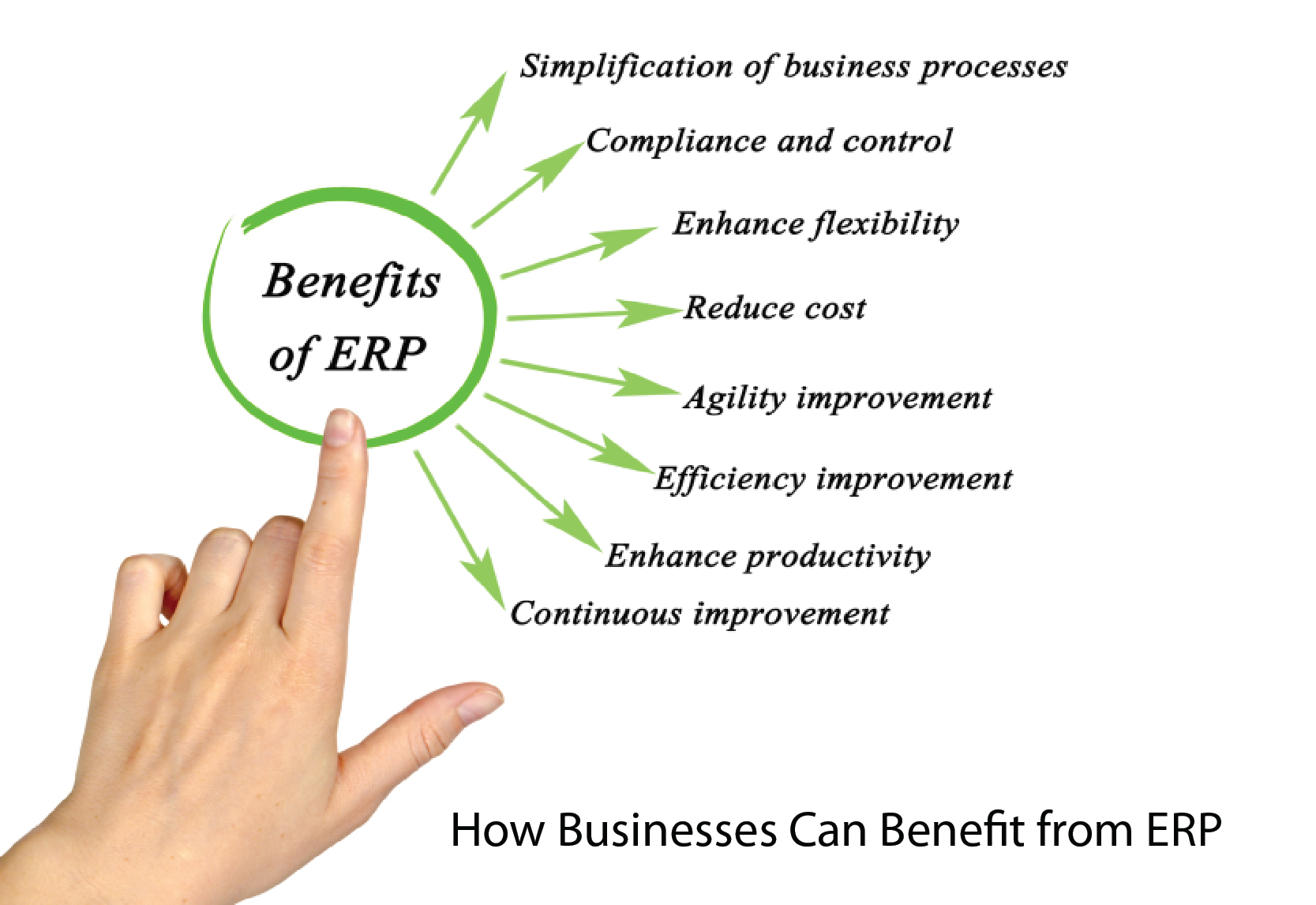How Businesses Can Benefit from ERP
In today’s competitive business landscape, companies need practical tools to streamline operations, optimize resources, and drive growth. Enterprise Resource Planning (ERP) systems have emerged as a powerful solution, offering various benefits to businesses across industries. In this article, we will explore the key advantages of ERP implementation, covering areas such as streamlined business processes, centralized data management, enhanced collaboration, customer relationship management, real-time reporting, scalability, cost savings, regulatory compliance, supply chain management, and data security.
Enhancing Efficiency and Productivity
Implementing an ERP system allows businesses to streamline their core processes, eliminating manual and redundant tasks. By automating workflows, companies can improve operational efficiency, reduce errors, and enhance productivity. ERP systems provide a centralized platform that integrates finance, human resources, inventory management, and sales functions, enabling smooth information flow across departments and optimizing overall business operations.
Improved Visibility and Decision-Making
One of the primary benefits of ERP is centralized data management. ERP systems consolidate data from different departments into a single, unified database. This eliminates data silos and provides real-time visibility into business performance. Decision-makers can access accurate and up-to-date information, allowing them to make informed decisions promptly. With a comprehensive view of data, businesses can identify trends, spot opportunities, and address challenges effectively.
Seamless Collaboration Across Departments
ERP systems break down the barriers between departments by integrating various functions and fostering collaboration. Employees from different departments can access shared data, collaborate on projects, and streamline communication. This integrated functionality promotes cross-departmental cooperation, eliminates data discrepancies, and enhances productivity. For example, sales teams can access inventory data in real-time, ensuring accurate order fulfillment, while finance teams can monitor accounts receivable and payable, enabling better cash flow management.
Delivering Exceptional Service
ERP systems often include Customer Relationship Management (CRM) modules that help businesses manage and nurture customer relationships. With a centralized customer database, companies can track interactions, manage sales leads, and personalize customer experiences. This enables businesses to deliver exceptional service, build customer loyalty, and drive customer satisfaction. By leveraging the CRM capabilities of ERP, businesses can improve customer retention and generate repeat business.
Data-Driven Insights for Better Decision-Making
ERP systems offer robust reporting and analytics capabilities, providing businesses with real-time insights into their performance. Customizable dashboards and reports allow stakeholders to monitor key performance indicators, track metrics, and identify areas for improvement. With accurate and timely data, decision-makers can make data-driven decisions, identify trends, and adjust strategies accordingly. Real-time reporting and analytics empower businesses to respond swiftly to market changes, customer demands, and emerging opportunities.
Supporting Business Growth and Flexibility
As businesses grow, they need systems that scale and adapt to changing requirements. ERP systems provide scalability and flexibility to accommodate business growth. ERP systems can scale alongside the business, whether adding new users, expanding to multiple locations, or incorporating new modules. This scalability ensures that businesses adapt to evolving market demands, industry trends, and customer expectations, supporting long-term growth and success.
Optimizing Resources and Increasing Profitability
ERP implementation can result in significant cost savings and a high return on investment. Businesses can reduce labor costs and minimize errors by automating manual processes and improving efficiency. Inventory management features in ERP systems help optimize inventory levels, reducing carrying costs and eliminating excess stock. Streamlining procurement processes through ERP can lead to better supplier management, negotiation, and cost control. Additionally, ERP systems provide accurate financial data, enabling businesses to identify cost-saving opportunities, optimize resource allocation, and increase profitability.
Mitigating Compliance Risks
Compliance with regulations and industry standards is crucial for businesses to operate legally and ethically. ERP systems incorporate compliance functionalities that help organizations adhere to regulatory requirements. These systems facilitate data accuracy, traceability, and audit trails, ensuring transparency and mitigating compliance risks. Businesses can streamline regulatory reporting, minimize errors, and avoid costly penalties by centralizing data and automating compliance processes.
Improving Inventory Control and Logistics
Efficient supply chain management is vital for businesses to meet customer demands and maintain a competitive edge. ERP systems optimize supply chain processes, including procurement, inventory management, and logistics. By integrating these functions, businesses gain real-time visibility into their supply chain, enabling better inventory control, demand forecasting, and order fulfillment. Streamlining supply chain management through ERP leads to reduced lead times, lower inventory carrying costs, and improved customer satisfaction.
Protecting Sensitive Business Information
Data security is a top concern for businesses in the digital age. ERP systems employ robust security measures to protect sensitive business information. Access controls, encryption, and user authentication mechanisms safeguard data from unauthorized access. Regular data backups and disaster recovery plans ensure business continuity and minimize data loss risks. By implementing ERP, businesses can mitigate the threat of data breaches, protect their intellectual property, and build trust with customers and partners.
Conclusion
ERP systems offer a comprehensive solution for businesses seeking to optimize operations, enhance productivity, and drive growth. ERP systems bring numerous benefits, from streamlining business processes and centralizing data management to enabling collaboration, improving customer relationship management, and providing real-time reporting and analytics. Additionally, scalability, cost savings, regulatory compliance, streamlined supply chain management, and increased data security further contribute to the value of ERP implementation. By leveraging the power of ERP, businesses can gain a competitive edge, adapt to changing market dynamics, and achieve long-term success.







